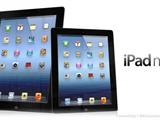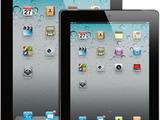Apple needs a new roadmap again
Beijing, August 12th - Apple seems to be in trouble, a familiar kind of trouble. So what does it need to do to get back on track? Founder of MacWeek magazine, Michael Tchong, wrote an article pointing out that without visionary talent like Steve Jobs, Apple has only two paths: either start listening to the voices of customers and give them what they want, or significantly speed up the R&D process and pray that they can soon catch the next big wave.
Here is the full text of the article:
Recently, reports have emerged that Apple's board is beginning to worry about Apple's decline. If the sources from Fox Business Network are credible, then the board is concerned about the company's "pace of innovation." As the founder of MacWEEK Weekly, I would say, "This feels like déjà vu."
Charlie Gasparino of Fox Business Network, citing unnamed sources, said, "According to sources, Apple's board is worried about the company's pace of innovation. What do they have? They have the iPad and some other products, but there has been no innovation in the products inherited from Steve Jobs, which puts pressure on CEO Tim Cook to innovate and act quickly."
From a historical perspective, Apple has done well. After all, who wouldn't feel proud to own a product like the iPad, which has sold an astonishing 155 million units in just over three years?
And who wouldn't become arrogant after leading the trend of groundbreaking smartphone designs and selling 388 million iPhones in six years?
However, looking at these two charts, although the overall sales growth of iPads and iPhones continues to rise, the rapid decline of these two products in the last two quarters is unprecedented, even when considering seasonal factors.
iPad Sales Trend 2010-2013
iPhone Sales Trend 2007-2013
Meanwhile, data released this week by IDC shows that in the last quarter, Android smartphones shipped globally reached 187.4 million units, capturing a market share of 79.3%; Apple's iOS smartphone platform lags far behind with only a 13.2% share, equivalent to 31.2 million units shipped.
Familiar Situation
Please forgive me for revisiting old history, but I've seen similar situations before, just with different protagonists.
Recall Bill Gates' praise for the Macintosh during its launch in 1984. Notably, he ended with a smug smile. What did those cryptic words mean? Was the Macintosh truly the new standard as he claimed, or was it merely a new standard that captured people's imagination? Similarly, when Eric Schmidt, Chairman of Google, left Apple's boardroom after hearing Steve Jobs discuss the new iPhone product, you might also have noticed a similar smug smile on Schmidt's face.
Allowing Schmidt to join the board was clearly a major mistake by Apple. Another significant error was in 1997 when Jobs announced that Apple would revoke Power Computing's license to produce Mac-compatible machines, while Windows 95, another Mac cloner, began its journey to world domination.
Surely, I enjoy seeing people using computers with the Apple logo everywhere. I guess the circles I move in really love Apple products. However, if it weren't for Apple selling 543 million iPhones and iPads worldwide, that scenario definitely wouldn't happen. That also led many people to switch from Windows to Apple computers. Using the iPhone to attract people to switch to Mac was a strategy unimaginable to Jobs in 1997.
As Matt Rossoff pointed out, including tablets, Apple is still the largest computer manufacturer in the world. But he also admitted that Lenovo, in second place, is rapidly eating into Apple's market share.
Supporters Defecting
Recall its decision last year to delay the release of the iPhone until September, combined with launching a new iPad around the same time, which indeed brought Apple impressive fourth-quarter results.
However, instead of accelerating updates for the iPhone and iPad, the company chose to stick to its unchanging annual upgrade strategy.
This strategy worked fine when Apple was at its peak and untouchable, but with a series of excellent Android phones such as Samsung Galaxy S4, Sony Xperia Z Ultra, Motorola Moto X, LG G2 flooding the market, a large number of consumers clearly began succumbing to the allure of Android.
More worrying is that many renowned commentators who were once staunch supporters of Apple have now defected to the Android camp.
First, Guy Kawasaki announced he would join Motorola Mobility as an advisor to Google. Kawasaki was one of the earliest Apple evangelists, revealing to The New York Times in April 1987 that he "had six-colored blood running through his veins," referring to the six colors of Apple's old logo.
Then, MG Siegler, TechCrunch's most steadfast supporter of Apple, also joined Google Ventures.
Only Two Paths Forward
When you no longer have someone with the vision of Steve Jobs, you only have two options: either start listening to customer feedback and give them what they want, or significantly accelerate your R&D process and pray that you can soon catch the next big wave.
Apple is currently doing neither of these. Most concerning is the amount of effort they have put into making iOS 7 more visually appealing. Adjusting nearly a million apps to fit iOS 7's new design will consume countless hours of developers' time, akin to putting lipstick on a pig.
The market is eagerly awaiting Apple to release an iPhone with a larger screen, and such a device would require even more effort from developers to adjust their apps. If Apple had indeed listened to customer feedback, they should have already followed through with developing that phone, as the "phablet" trend is unstoppable.
To understand why, you only need to trace back to April 2010, where you'll find that the rise of large-screen phones actually originated from the immense success of Apple's own iPad. Because the iPad made consumers realize they needed a large-screen device like a tablet; if there was a device that combined the features of an iPad and an iPhone, they wouldn't carry both devices simultaneously.
Ironically, as the creator of two groundbreaking products, Apple became the last company to realize that consumers needed a middle product between smartphones and tablets.
As the latest data shows, not only has the Android camp caught up, but it has now established a leading advantage.
Last September, another former staunch supporter of Apple, MacWEEK star reporter John Battelle, told Bloomberg Television that Apple's iPhone was terrible, and the company had lost its way. This statement shocked me at the time.
I'm starting to have the ugly thought that I may soon agree with Battelle's words. My heart is still flowing with six-colored blood.



